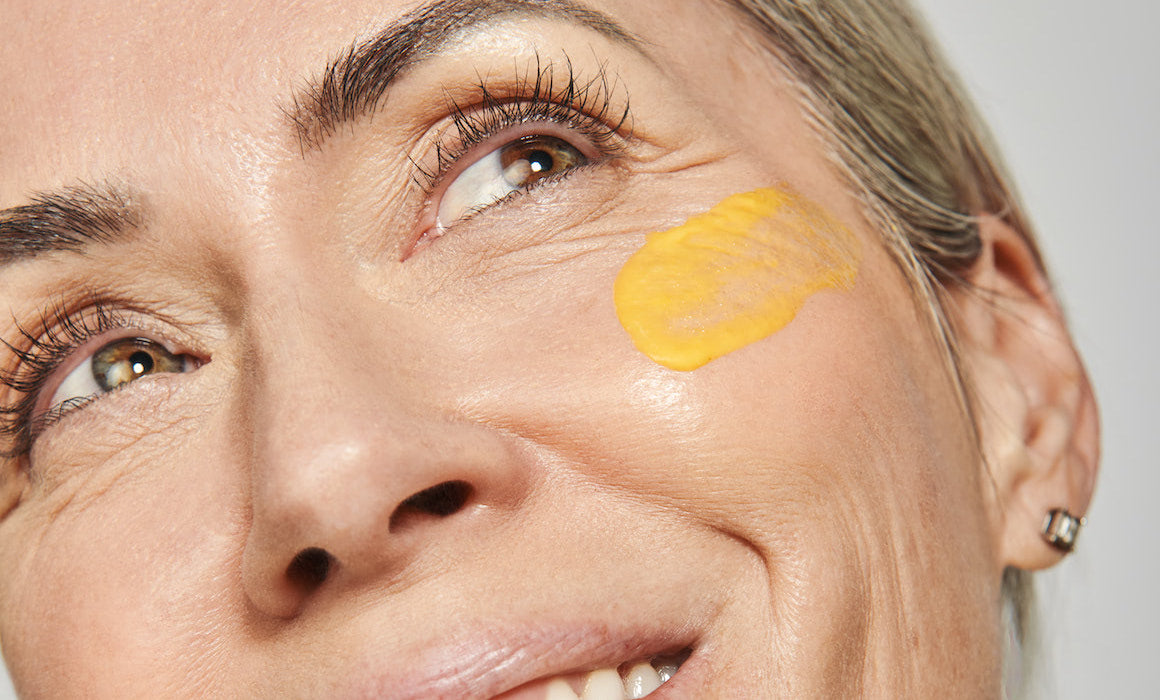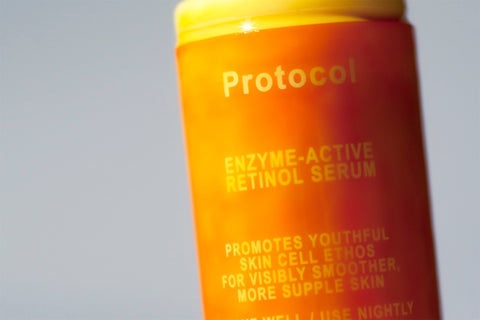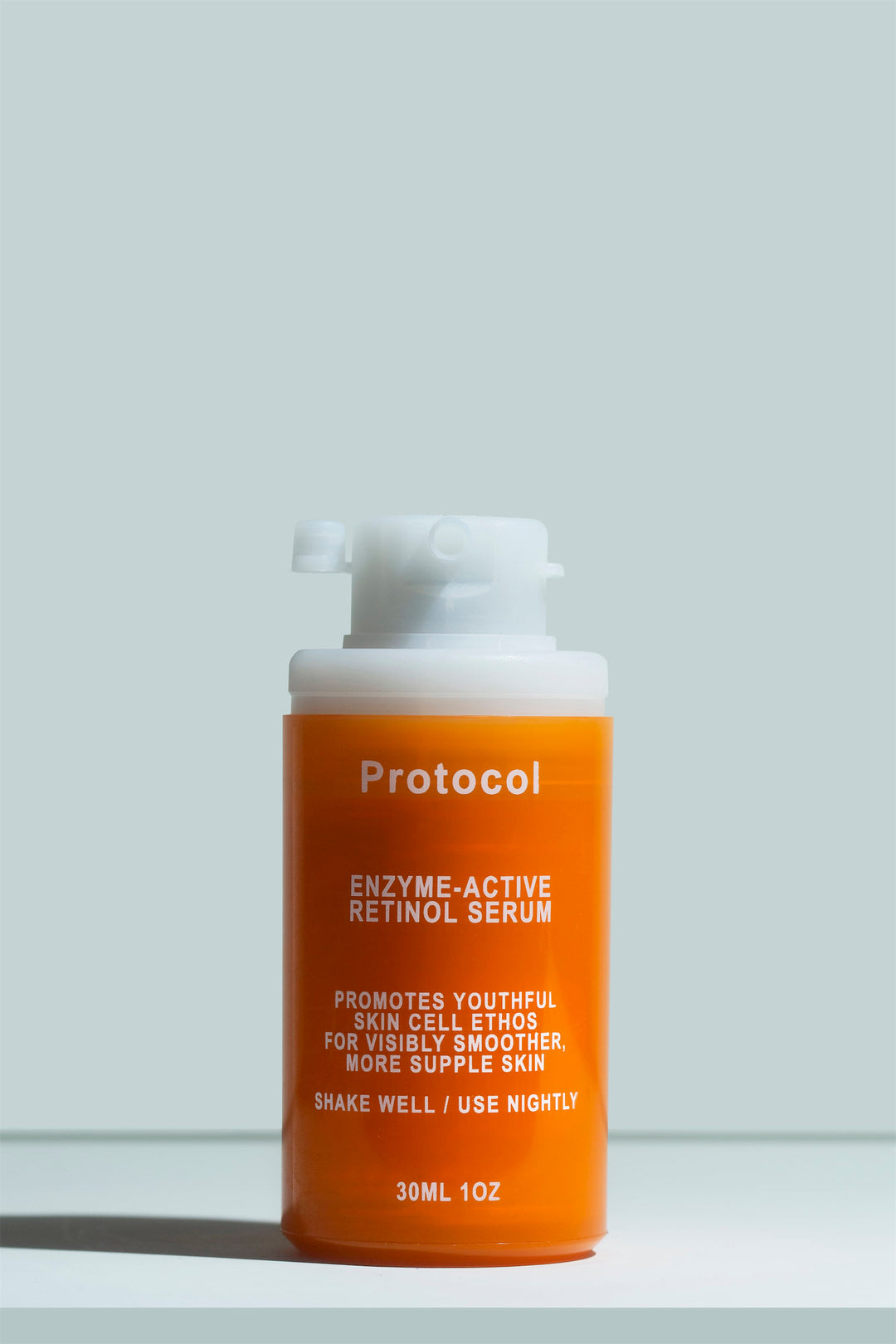Best Over-the-Counter Retinol + OTC Retinol Myth Busting


Some retinoids are available by prescription only, while others can be purchased at the store. If you’re looking for the best over-the-counter retinol for your skin, this post will help you find it… While also explaining why the term “OTC retinol” doesn’t quite make sense.
Disclaimer: Retinoids are regulated as cosmetics, over-the-counter medications, or prescription-only drugs. This post is intended to inform and does not constitute medical advice. Please speak to your doctor before making any decisions about your health.
What is over-the-counter retinol?
Retinoids (sometimes incorrectly referred to as retinol) are a class of skincare ingredients related to vitamin A.
These ingredients are remarkable, giving a smoothing and anti-aging boost by speeding up the skin’s own renewal mechanisms.
The most potent and intense of the bunch is retinoic acid, which is available by prescription only.
However, there are a few options that don’t require a prescription.
Before we start discussing them, we want to clarify something: The actual term “over-the-counter” or “OTC” refers to molecules classified as drugs that don’t require a prescription.
In the US right now, the only OTC retinoid is adapalene, usually sold under the brand name Differin.
However, there are plenty of retinoids that are considered cosmetics. That means they’re available without the need for a prescription, but they’re not considered “OTC” because they’re not regulated as drugs.
The very best OTC retinols you can buy without a prescription have exquisite skin smoothing and renewing effects, while many others are largely useless. Here’s a quick summary:
- Retinol: Retinol is the most common cosmetic retinoid. It’s fairly mild because in order to impact the skin, it has to first convert into a molecule called retinaldehyde (retinal for short) and then into a molecule called retinoic acid (i.e. the prescription retinoid). During this process, it loses a lot of steam so seeing results takes a long time.
- Retinal: Retinal with an “A” or retinaldehyde is the ideal retinoid for most cosmetic concerns. If you ask us, it's the best OTC retinol by far. Don’t let the name scare you - it’s a naturally occuring ingredient. Once applied to the skin, it converts directly to retinoic acid. It's estimated to be 20 times more effective than retinol but equally gentle and unlikely to irritate the skin.
- Adapalene: This retinoid is a topical OTC medication that’s FDA-approved for treating acne. It’s very targeted, but it wouldn’t be our go-to for other concerns like texture or fine lines. It’s also available at a prescription strength.
- Derivatives: By far the least effective class of retinoids. Derivatives like retinyl palmitate have to undergo three conversions to become retinoic acid. By the time that happens, there’s almost nothing left that can impact your skin.
Read our comprehensive guide to the different types of retinol to learn even more about how they work as well as how they compare to prescription retinoids.
Best OTC retinol for every concern
When choosing the right cosmetic or OTC retinoid for you, you should take into account what skin concerns you’re actually dealing with. These are our recommendations.
Best for wrinkles and photoaging
Retinal, the activated form of retinol, is a superstar when it comes to anti-aging. Research shows that it can visibly reduce the texture of fine lines and wrinkles without compromising the skin’s moisture barrier.
The most remarkable thing is that, when directly compared to prescription-only retinoic acid, retinal had the same wrinkle-minimizing effects but it was significantly easier for the skin to tolerate.
Best for acne
Acne is a skin condition where the pores clog easily with excessive dead skin and sebum, and may also become inflamed following infection with the acne bacteria.
Adapalene is the only OTC retinoid approved as an acne medication, but many people do see improvement in their skin clarity after using cosmetic retinol or retinaldehyde.
We always recommend speaking to your doctor if you’re suffering from a specific skin condition.
Best for beginners
If you’re new to using skin-renewing ingredients, you’ll want to start with a gentle cosmetic retinoid. Many beginners opt for ultra-mild retinol, often at a very low percentage like 0.3%.
It’s totally up to you to decide what you think your skin can tolerate. However, we find that despite its powerful effects, 0.1% retinal is often the best OTC retinol for beginners since it shows visible skin renewal very early on and yet is extremely unlikely to irritate the skin.
Best for sensitive skin
When developing a skincare routine for sensitive skin, the most important factor is how you introduce new products.
It’s essential to introduce skincare gradually when it contains an active ingredient like retinol. As your skin’s self-repair mechanisms speed up thanks to those new, skin-renewing ingredients, you can slowly increase frequency.
When you take that kind of approach, any OTC retinoid that shows a minimal risk of irritation is a safe bet. We think retinal is the best choice though, the skin tolerates it well but it also provides more robust results than retinol or its derivatives.
If you choose the right retinoid, your skin should have no problem tolerating daily use eventually.
If you’d rather be as cautious as possible, you can always start with a low-percentage retinol and then work your way up to retinal.
What is the strongest OTC retinol?
The two strongest non-prescription retinoid options are adapalene and retinal.
Adapalene acts directly on two of the skin’s retinoic acid receptors, without having to undergo any conversions. It’s potent and targeted, especially if you’re experiencing breakouts.
Retinal converts into retinoic acid, so it’s able to impact all three of the skin’s retinoic acid receptors. As such, it offers a wide range of cosmetic benefits, especially when it comes to visibly improving wrinkles, texture, and other markers of sun damage and premature aging. Despite its powerful effects, retinal is very gentle on the skin, so there’s a minimal risk of irritation when using it!
There’s one complication, though. Retinal loses its efficacy if it’s exposed to air and light, so it has to be packaged in an oxygen-free environment to guarantee its stability and potency. That means jars and dropper bottles that let in air are a total waste.
OTC or cosmetic? Either way, retinol is a powerhouse
Whether you choose cosmetic or OTC, retinoids are the best way to advance a simple skincare routine. No other topical makes the skin quite so smooth, youthful, and glowy!
Since we don’t believe in half-measures, we formulated the most potent, stable, and effective non-prescription retinoid: The Enzyme-Active Retinol Serum.
Retinol normally converts into retinaldehyde with the help of enzymes in your skin, so this saves your skin the effort, which is why retinal is such an effective skin transformer. Made with 0.1% retinal packaged in a revolutionary oxygen-free bottle, it converts to retinoic acid readily and has comparable anti-aging effects without irritation.

Is it an OTC retinol? Well, not quite - all retinol and retinal products are technically cosmetics. But if you’re skipping the prescription, it’s the best retinoid you can find on store shelves.





